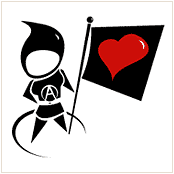Vodka Part II: Sobering Up the USSR by Alexei Bayer
When the Soviet Union finally disintegrated at the end of 1991,
|
That was to be expected not just on grounds of political smarts. After all, Mr. Yeltsin himself was far from a teetotaler.
From abroad, Mr. Yeltsin might have appeared rather ridiculous. But to Russians, his drunkenness was a hopeful sign that their own love of vodka would never be denied.
A poll done shows 70% of Russians consider Boris Yeltsin a failure and the reason for the collapse of their political economy and social order. He is not their hero.
A poll by the Levada Analytical Centre in December found 70 percent think the Yeltsin era did more harm than good. Half thought he should be prosecuted.
He is however a hero to the Cold War leaders in the West, which is why they showed up at his funeral, while the common people stayed away in droves.
The Legacy of Boris Yeltsin
Corruption, crony capitalism, and Russia's near-demise
The real Yeltsin legacyFar from introducing freedom and democracy, the late president helped discredit them in Russia
While praised for bringing Democracy to Russia he did so in fine old Stalinist fashion by using tanks.
In August 1991, Yeltsin won international plaudits for casting himself as a democrat and defying the August coup attempt of 1991 by hard-line Communists. But he left office widely despised as a desperate, ailing autocrat among the Russian population. As president, Yeltsin's conception of the presidency was highly autocratic. Yeltsin either acted as his own prime minister (until June 1992) or appointed men of his choice, regardless of parliament. His confrontations with parliament climaxed in the October 1993 Russian constitutional crisis, when Yeltsin called up tanks to shell the Russian White House, blasting out his opponents in parliament. Later in 1993, Yeltsin imposed a new constitution with strong presidential powers, which was approved by referendum in December.
All the praise for Yeltsin is misplaced, he was a mere opportunist in the right place at the right time to become America's Man to run in the first American style elections for an American style Presidency, in post cold war Russia. His legacy? Putin.
While some in the media will foist on the public the myth that Yeltsin was some how responsible for the end of the Soviet Union, that too is American wishful thinking. He will go down in history as a footnote in biographies of Gorbachev.
The Soviet CollapseThe timeline of the collapse of the Soviet Union can be traced to September 13, 1985. On this date, Sheikh Ahmed Zaki Yamani, the minister of oil of Saudi Arabia, declared that the monarchy had decided to alter its oil policy radically. The Saudis stopped protecting oil prices, and Saudi Arabia quickly regained its share in the world market. During the next six months, oil production in Saudi Arabia increased fourfold, while oil prices collapsed by approximately the same amount in real terms.
As a result, the Soviet Union lost approximately $20 billion per year, money without which the country simply could not survive. The Soviet leadership was confronted with a difficult decision on how to adjust. There were three options--or a combination of three options--available to the Soviet leadership.
First, dissolve the Eastern European empire and effectively stop barter trade in oil and gas with the Socialist bloc countries, and start charging hard currency for the hydrocarbons. This choice, however, involved convincing the Soviet leadership in 1985 to negate completely the results of World War II. In reality, the leader who proposed this idea at the CPSU Central Committee meeting at that time risked losing his position as general secretary.
Second, drastically reduce Soviet food imports by $20 billion, the amount the Soviet Union lost when oil prices collapsed. But in practical terms, this option meant the introduction of food rationing at rates similar to those used during World War II. The Soviet leadership understood the consequences: the Soviet system would not survive for even one month. This idea was never seriously discussed.
Third, implement radical cuts in the military-industrial complex. With this option, however, the Soviet leadership risked serious conflict with regional and industrial elites, since a large number of Soviet cities depended solely on the military-industrial complex. This choice was also never seriously considered.
Unable to realize any of the above solutions, the Soviet leadership decided to adopt a policy of effectively disregarding the problem in hopes that it would somehow wither away. Instead of implementing actual reforms, the Soviet Union started to borrow money from abroad while its international credit rating was still strong. It borrowed heavily from 1985 to 1988, but in 1989 the Soviet economy stalled completely.
When the situation in the Soviet Union is examined from financial and hard currency perspectives, Gorbachev's policies at the time are much easier to comprehend (see figure 6). Government-to-government loans were bound to come with a number of rigid conditions. For instance, if the Soviet military crushed Solidarity Party demonstrations in Warsaw, the Soviet Union would not have received the desperately needed $100 billion from the West. The Socialist bloc was stable when the Soviet Union had the prerogative to use as much force as necessary to reestablish control, as previously demonstrated in Germany, Hungary, and Czechoslovakia. But in 1989 the Polish elites understood that Soviet tanks would not be used to defend the communist government.
The only option left for the Soviet elites was to begin immediate negotiations about the conditions of surrender. Gorbachev did not have to inform President George H. W. Bush at the Malta Summit in 1989 that the threat of force to support the communist regimes in Eastern Europe would not be employed. This was already evident at the time. Six weeks after the talks, no communist regime in Eastern Europe remained.
Tags
state capitalism, USSR, Russia, Putin Lenin, Bureaucratic Collectivism, , Soviet Union, Bolsheviks, Boris Yeltsin, socialism, marxist, communist, state-capitalist,








